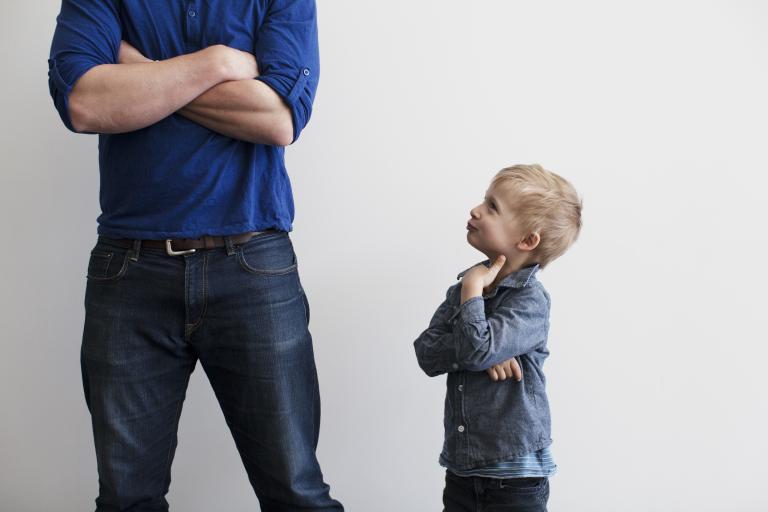People say ignorance is bliss. Sometimes it is, I suppose, but other times, it is something else: a crutch. A cave. A convenient excuse. In my early days as an autism dad, the complexity of autism afforded me an opportunity to hide behind my own lack of understanding and remain passive. Autism was too complicated, I decided, and the research too contradictory, so what was the point of trying to learn?
Thus, I gave in to ignorance and did what countless other men in my shoes have done: I let my wife figure it out.
This type of resignation is sad. It’s not fair to our wives, first of all. Why should they have to carry it all on their own? Neither is it fair to our children who rightly rely on us to help them cope and work through the difficulties they face.

When my autistic son would melt down, I had no way to respond. I would get frustrated. Angry, even. “Answer me, please! Stop shrieking like that!!!”
This was a sad reaction. Dads are supposed to be good at figuring things out. We pride ourselves on being stable, reliable investigators. When the tv goes out, we don’t sit there, idle and mad. No. We get off the couch and check the cables. We make sure the power strips are turned on, and the right input selected. Our basic knowledge gives us power, if not to correct the problem, at least to understand why a thing is working the way it’s working.
When it comes to people—namely, our own children—we would do well to put those investigative powers to use; to let our knowledge become empathy. Instead of lashing out at our kids, we could ask real questions and seek out real answers: “What is preventing you from responding to me right now? What is going on inside you that makes you panic like this?”
I’m talking, of course, about empathy. When we take time to investigate another person’s unique world—when we humble ourselves by admitting just how different that world is to our own—then we can begin to engage in a healthier manner.
My wife will always be the primary scientist in our household. She loves to study, and she loves to research about autism. I could never outdo her in this realm. But when I started making an honest effort to understand what was going on with our boy (when I started reading on my own), I became far more patient with him. I started to realize just how difficult life was for him. If my mind worked like Jack’s—if my brain tried to process all the overwhelming stimuli at once like his does—I would be a mess. I would have no idea how to stay calm, let alone answer my father’s question about school.
Empathy breeds patience, and if there’s one thing our kids need from us dads, it is our patience. When it wears thin, they can feel it, and it only adds to the anxiety already brewing inside them.
Dads, then, must resist the urge to stay on the couch. We must get past the temptation to wallow on the sidelines, going on about how we “can’t fix this.” We have a chance to step into our child’s shoes; to face his or her condition head on by doing some research. When we begin to wrap our minds around what is going on inside theirs, our compassion will only increase. And that is what our families need from us most of all.













